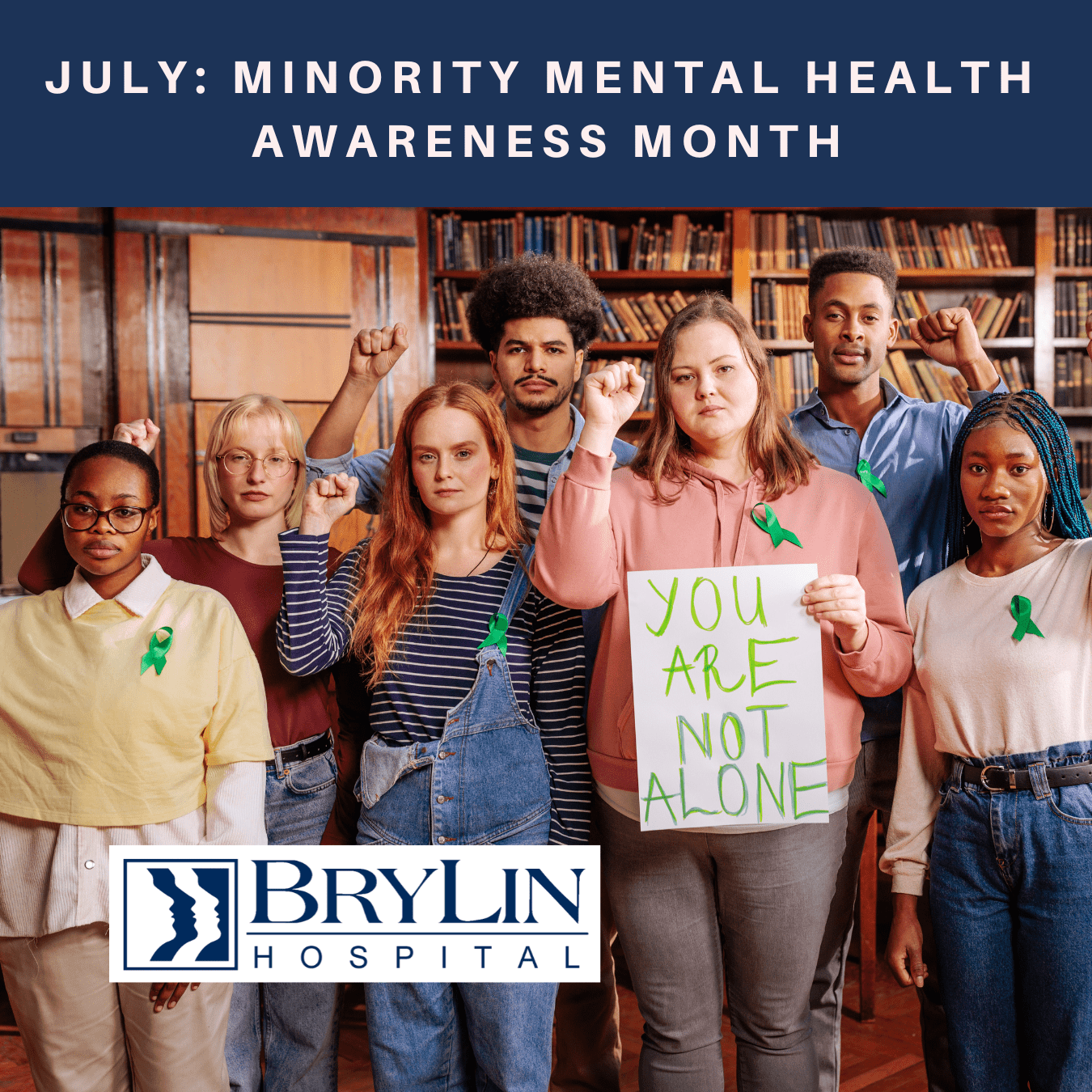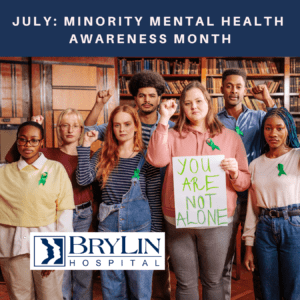 National Minority Mental Health Awareness Month: A Time to Recognize and Address Disparities
National Minority Mental Health Awareness Month: A Time to Recognize and Address Disparities
Each July, we observe National Minority Mental Health Awareness Month, a time dedicated to raising awareness about the unique mental health challenges faced by racial and ethnic minorities in the United States. This month was established in 2008 by Congress as Bebe Moore Campbell National Minority Mental Health Awareness Month. This observation was named in honor of the late author and advocate who tirelessly worked to shed light on mental health issues in minority communities.
According to the Centers for Disease Control and Prevention (CDC), more than 1 in 5 US adults live with a mental illness. These conditions are common, treatable, and often preventable, affecting individuals regardless of race, color, gender, or identity. However, mental health disparities exist, and minority populations often face additional barriers to accessing care.
Minority Mental Health Risk Factors and Barriers
For instance, studies show that lesbian, gay, bisexual, and transgender (LGBT) individuals are four times more likely to attempt suicide than their straight peers. Similarly, over 16 percent of Black or African American individuals have been diagnosed with a mental health condition in the past year, yet only one in three of them will receive the necessary mental health care. The Kaiser Family Foundation reports that people of color face disproportionate barriers to accessing mental health care, leading to higher fatalities from suicide and drug overdoses among the BIPOC community compared to the white community.
Moreover, research from The Trevor Project indicates that LGBTQIA+ youth are significantly more likely to experience mental illness symptoms and suicidal thoughts than their heterosexual peers. However, an affirming culture can positively impact and reduce suicidal actions among these youth.
There is Hope for Minorities Struggling with their Mental Health
Despite these challenges, there is hope. By increasing awareness, funding mental health care initiatives, and encouraging marginalized groups to seek treatment, we can work towards reducing these disparities. The Department of Health and Human Services reports, minority populations are less likely to be diagnosed with a mental health condition and have less access to adequate care. Addressing these gaps is crucial for fostering a healthier, more inclusive society.
At BryLin Hospital, we offer crisis mental health care for people of all ages and from all walks of life. We promote the message that prevention works, treatment is effective, and people do recover. This July, let’s join forces to shine a light on mental health disparities. Let us encourage self-care among our friends and loved ones, and reflect on how the system can better serve diverse cultural backgrounds and experiences.
National Minority Mental Health Awareness Month is an opportunity to foster a deeper understanding of the unique challenges faced by minority populations. Together, we can make a difference and help those who are needlessly suffering here in Buffalo and across the country.


 National Minority Mental Health Awareness Month: A Time to Recognize and Address Disparities
National Minority Mental Health Awareness Month: A Time to Recognize and Address Disparities
Comments are closed